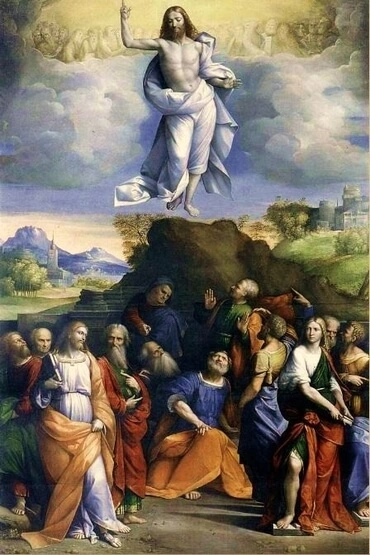Explanation of John 1:14
By Brian David

This is a key moment in this story. The beginning of John 1 explained that the Lord is perfect, infinite love which gave itself expression as divine truth. The duality of love and expression formed a template for humanity, which meant that the Lord’s duality made him the ultimate, divine human. It showed that the divine truth was the power of creation, and that the Lord shared that truth with humanity from the outset, so that people could receive His love and return it. But people kept turning away, and the Lord had to keep expressing his love in more and more external forms to maintain a connection.
By mentioning John the Baptist, the chapter showed that the Jews of the time still had the truth – the Lord’s Word – contained inside the rough-hewn images of the Old Testament. But they were so steeped in evil loves and false thinking that the connection to the Word – to the love within the Old Testament – was about to be snipped forever.
So the Word became flesh. The Lord passed the full expression of His love and His full humanity into physical flesh as Jesus. That way He could once again show the life within the existing Scriptures and could make His own life and His own words part of an expanded expression of truth for a new age of humanity. People could no longer see and feel the Lord’s love through the Old Testament, but they could see and feel it in the face and hands and words of Jesus.
The "glory" here expresses the blinding brilliance of that truth. The "Father" represents the Lord’s actual love itself, and being "begotten" means that the love was expressed in the form of truth. Being full of "truth" has a pretty obvious meaning, but "grace" means an affection, a love for what is true.
The Lord had to come. He had to let His humanity flow down into the flesh, into the most external of forms, because that was the only way we were going to see and embrace it.
(References: A Brief Explanation of the Teachings of the New Church 117; The Apocalypse Explained 1069 [3]; The Word 20; True Christian Religion 3, 85)
Arcana Coelestia #2526
2526. 'And in the blamelessness of my hands have I done this' means the product of the affection for truth and thus of all that enables one so to think. This is clear from the meaning of 'blamelessness' and also of 'hands'. The original language expresses 'blamelessness' by means of a word which also means cleanliness and purity. 'Hands' has reference to truth and means power, and thus means an ability so to think, 878. The reason why 'in the uprightness of my heart and in the blamelessness of my hands have I done this' therefore means that such thinking had been the product of innocence and simple good, and of the affection for truth, and thus of an entire ability so to think, is that it is innocence which causes good to be good, and good which causes truth to be truth. And when these are present in their proper order an entire ability so to think is present too. It is evident that these things are embodied in these words, for an upright or whole or perfect heart, which means good, does not exist unless innocence lies within the good, as stated, thereby making it simple good. And blameless or clean or pure hands, which has reference to truths, do not exist unless good is contained within the truths, as has also been stated, that is, unless the affection for truth exists. When thinking is a product of these it is also a product of an entire ability or power so to think, which is likewise meant by the hands, 878.






